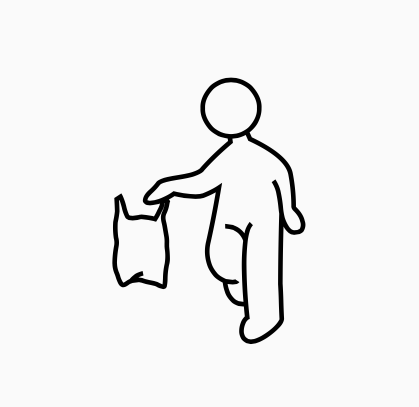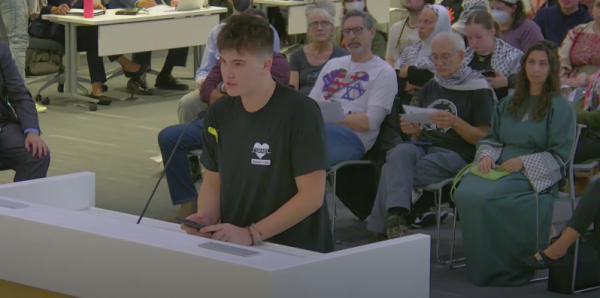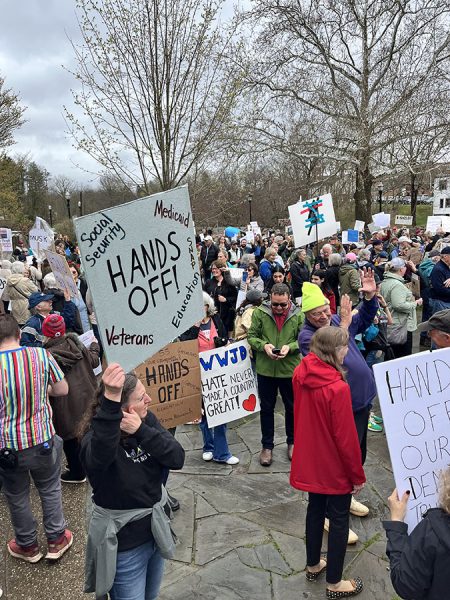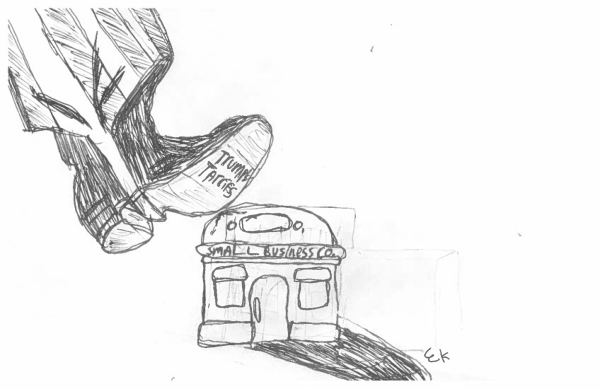Ban the Bag

Image by Viral faisalovers via thenounproject
Plastic bags: They’re a part of our everyday life. We use them when we are grocery shopping, shoe shopping or bringing leftovers home from a local restaurant.
Plastic bags were first introduced in 1977, and by 1982 most stores in the United States were using these chemical-filled bags. It took time for disposable plastic bags to catch on; until 1985, the majority of stores used paper or reusable bags. But when they caught on, they were everywhere.
At the time, plastic bags may have seemed miraculous, but they have a dark side.
Some grocery stores may ask if you’d like to purchase a reusable grocery bag or ask if you brought your own, but most of the time the answer to both questions is no. The single-use plastic bag is the source of the pollution that now floods our rivers, landfills, oceans and beaches, ruining our environment and marine life.
There is a simple fix to the problem.
There are about one trillion plastic bags consumed every year all around the world. About 100 billion of them are used and thrown away every year, costing retailers billions of dollars.
A recent study found that Lake Erie is Polluted by at least 100 Million pieces of plastic, most of which are from straws and plastic bags.
Scientists have even spotted a plastic bag at a depth of 36,000 feet below sea level at the bottom of the Mariana Trench.
Plastic bags are non-biodegradable, so instead of breaking down naturally, they break into smaller, more toxic pieces.
These pieces contaminate soil and water, impacting humans with indigestion through food and water. Worse, plastic contaminates can be linked to cancers and birth defects.
Plastic bags are responsible for the deaths of seagulls, whales, sea turtles, and hundreds of other species. Ocean plastic is estimated to kill millions of marine animals every year.
Some governments have banned plastic bags to show their support and care for the environment and its wildlife. Countries such as the United Kingdom, France, China, Netherlands, Australia and Kenya have either banned or introduced taxes on single-use plastic bags.
The United States is very late to this party, with only San Francisco taking action.
They city has put a 10-cent tax on plastic bags, strongly encouraging the use of reusable bags, leading to a 72% reduction in plastic bag pollution.
The most effective tool against fighting plastic pollution, however, is us.
As consumers, we are the force of change when it comes to what is produced in our society. Consumers fell in love with the automobile, making the landscape what it is today. Consumers took a liking to computers and nurtured the Internet, on which this piece is published. It is consumers who started buying plastic bags, and it is consumers who may put an end to their use for good.











